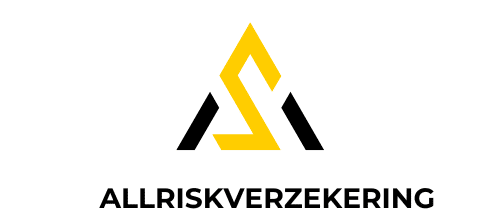The luxury market is a bustling and innovative industry. With the evolution of consumer behavior, technology, and global phenomena, luxury brands are continuously pushing the boundaries to cater to their discerning customers. Specifically, in the UK, the luxury market has seen several significant shifts that have influenced the marketing strategies of these elite brands. These trends are shaping the future of luxury retail and are critical to understanding the trajectory of this high-end industry.
The Growth of the Luxury Market
The luxury market in the UK has seen steady growth over the years. As per the figures from a recent report, the total revenue made by luxury brands in the UK surpassed the £40 billion mark last year. This impressive growth is driven by multiple factors, including strong brand identities, high-quality goods, and innovative marketing strategies.
In parallel : What Strategies Can Be Used to Enhance Productivity in UK Co-working Spaces?
Luxury goods are no longer seen as mere status symbols but also as reflections of personal taste, values, and lifestyle. Brands that have adapted to this shift are reaping the rewards, with an increase in sales and consumer loyalty. By understanding the modern luxury consumer and tailoring their strategies accordingly, brands have managed to achieve revenue growth year after year.
Online retail has also played a significant part in this growth. With the rise of e-commerce, luxury brands have extended their reach beyond traditional brick-and-mortar stores, providing an exclusive shopping experience to a wider audience. This move to digital retail has proven to be a successful strategy, attracting more consumers and driving sales growth.
Also read : What Are the Implications of Next-Generation 6G Wireless on UK Businesses?
The Rise of Sustainable and Ethical Luxury
One of the most definitive trends shaping the luxury market in the UK is the rise of sustainable and ethical luxury. Consumers are becoming more conscious of the social and environmental impact of their purchases. They are willing to pay a premium for goods that align with their values, which include sustainability and ethical production.
Brands, recognizing this shift in consumer preferences, have started to incorporate these principles into their operations. From sourcing sustainable materials to ensuring fair labor practices, luxury brands are making considerable effort to meet the demands of the conscious consumer. Fashion houses like Stella McCartney and Vivienne Westwood have been pioneers in this trend, leading by example and setting new industry standards.
This trend is not limited to fashion alone. Luxury automaker Bentley, for instance, has committed to offering only electric models by 2030. The brand’s decision underscores the importance of sustainability even in the high-end automotive industry.
The Influence of Digital Marketing
Digital marketing is another trend shaping the future of luxury brand marketing in the UK. In an era where consumers spend a substantial amount of time online, luxury brands are leveraging digital platforms to connect with their audience.
From social media marketing to influencer collaborations, brands are using digital tools to create engaging and personalized content. Burberry, for instance, has been an industry leader in digital marketing. The brand’s use of AR technology in its online shopping experience showcases how luxury brands can use digital platforms to provide a unique and immersive experience for their customers.
While digital marketing allows brands to reach a larger audience, it also requires them to constantly innovate and stay relevant amid the fast-paced digital landscape. Brands that can successfully navigate the digital space will have a significant edge over their competitors.
The Rise of Experiential Luxury
Luxury consumers, particularly younger generations, are increasingly valuing experiences over material goods. This shift has led to the rise of experiential luxury, a trend that focuses on offering unique and memorable experiences to consumers.
Luxury brands are capitalizing on this trend by offering exclusive experiences that go beyond the purchase of a product. From private shopping appointments to exclusive brand events, these experiences are designed to engage consumers and strengthen brand loyalty.
The luxury hotel industry, for instance, offers personalized experiences that cater to the unique tastes and preferences of its guests. These can range from personalized spa treatments to private dining experiences with world-class chefs.
As consumers continue to place a higher value on experiences, brands that can offer unique and personalized experiences will be able to distinguish themselves in the competitive luxury market.
The Influence of Cultural Trends
Cultural trends also play a significant role in shaping luxury brand marketing. The UK, with its rich and diverse culture, provides a wealth of opportunities for luxury brands to connect with their consumers on a deeper level.
Brands are leveraging cultural trends to create products and campaigns that resonate with their consumers. Whether it’s incorporating elements of British heritage into their designs or tapping into popular cultural phenomena, these brands are using cultural trends to make a bold statement.
Fashion house Alexander McQueen, for example, often draws inspiration from British history and culture for its collections. The brand’s ability to blend the traditional and the modern resonates with consumers, making it a standout in the luxury fashion industry.
By aligning with cultural trends, luxury brands can create a strong emotional connection with their consumers, enhancing their brand image and strengthening customer loyalty. This, in turn, can lead to increased sales and sustained growth in the long run.
As we delve deeper into 2024, these trends continue to shape the luxury market in the UK. Brands that can adapt and evolve in line with these trends are likely to thrive and make their mark in the ever-evolving luxury landscape.
The Impact of Personalisation in the Luxury Market
The demand for personalisation is another significant trend shaping the luxury goods market in the UK. Luxury consumers are increasingly seeking products and experiences that reflect their individuality and personal taste. They desire goods that are not just luxurious but also unique and tailored to their preferences.
Luxury brands are responding to this demand by offering customised products and personalised services. High-end fashion labels, for example, are offering made-to-measure services, allowing customers to have a hand in the design process and create unique pieces that perfectly suit their style. Luxury automobile manufacturers are also offering customisation options, enabling buyers to design cars that match their specific needs and aesthetic preferences.
Brands also provide a personalised shopping experience, from personalised product recommendations to private shopping appointments. Digital technology plays a crucial role in enabling this level of personalisation. Brands use data analytics to understand their customers’ preferences and deliver a tailored shopping experience.
For instance, Burberry’s innovative use of data analytics allows them to provide product suggestions based on the customer’s browsing history and previous purchases. This level of personalisation has significantly improved the brand’s customer engagement and loyalty.
Personalisation allows luxury brands to go beyond the traditional one-size-fits-all approach and truly cater to their customers’ unique needs and preferences. In doing so, they can establish a stronger connection with their customers, enhancing customer loyalty and ultimately driving revenue growth.
Luxury Market in the Post-Pandemic Era
The luxury brands market has also been shaped by global phenomena, specifically, the effects of the COVID-19 pandemic. The luxury industry was significantly affected by the pandemic, with many brick-and-mortar stores forced to close and luxury spending decreasing due to economic uncertainty.
However, as the UK emerges from the pandemic, there is a renewed optimism in the luxury goods industry. Market analysis reveals that consumer confidence is gradually returning, and the luxury retail market is expected to rebound.
The pandemic has also accelerated certain trends in the luxury market. The shift towards online shopping, for instance, has been further amplified as consumers increasingly embrace e-commerce in light of social distancing measures. Brands have been quick to adapt, improving their digital platforms and offering an enriched online shopping experience.
Sustainability has also become even more important. The pandemic has highlighted the need for businesses to be more mindful of their impact on the environment and society. In response, many brands have ramped up their sustainability efforts and are prioritising ethical practices more than ever.
Conclusion: The Future of Luxury Brand Marketing in the UK
The luxury market in the UK is continuously evolving, influenced by changing consumer behaviors, technological advancements, societal trends, and global events. From the growth of online retail and sustainable luxury to the rise of experiential luxury and personalisation, these trends have redefined what luxury means to consumers.
These trends suggest that the future of luxury brand marketing will be increasingly digital, personalised, and socially conscious. Brands that can adapt to these trends and meet the changing demands of their discerning customers will thrive in this dynamic market.
As the country emerges from the shadow of the pandemic, the UK luxury market is poised for a new era of growth and innovation. The brands that succeed in this market will be those that can maintain their heritage and essence while innovatively adapting to the ever-evolving tastes and preferences of their customers.
In this ever-changing landscape, understanding these trends and their impact on luxury brand marketing in the UK is crucial for any brand looking to maintain relevance and achieve sustained growth in the luxury industry. Whether a brand is established or emerging, staying ahead of these trends will be key to their success in the luxury goods market.
















